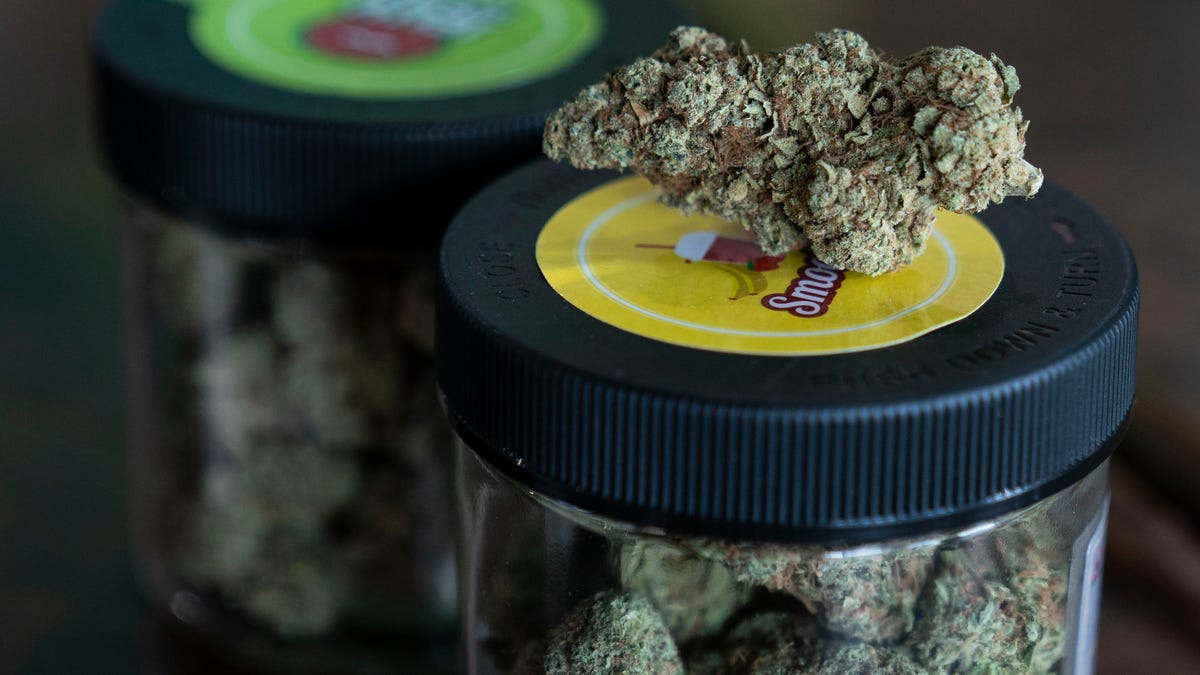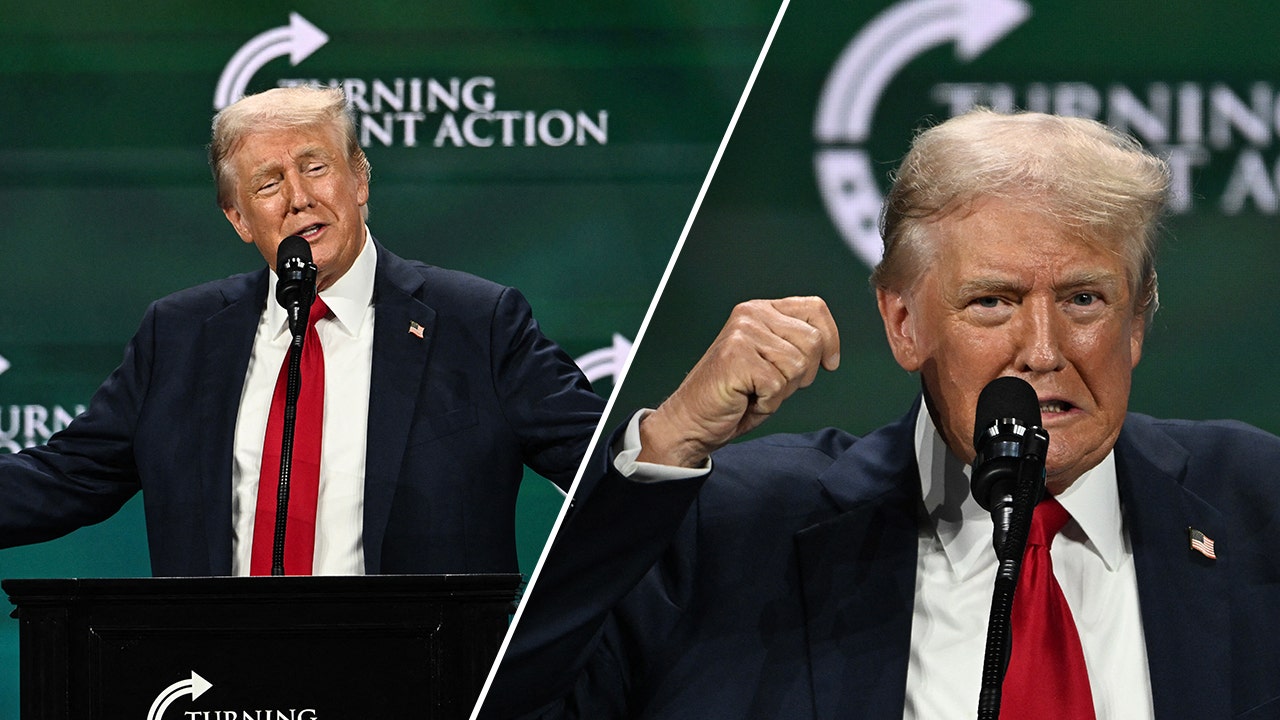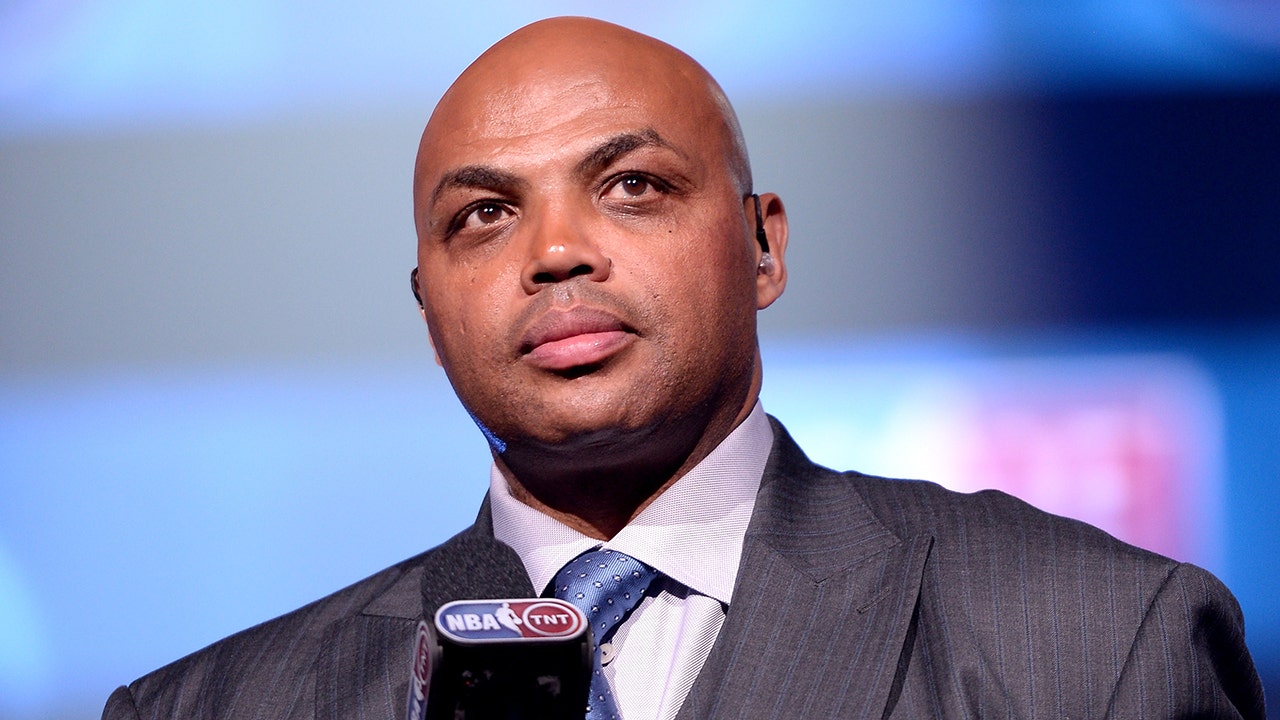Tennessee
Tennessee hemp products industry worries: Could new regulations stop sales in state?

What is delta 8? What to know about ‘diet weed’ and it’s safety.
Delta-8 THC products are exploding in popularity across the country. Here’s why they are available in states where marijuana is illegal.
Michael Soloman, one of Tennessee’s leading sellers of legal cannabis, believes the state is engaging in regulatory bait and switch.
On the one hand, a new law went into effect last year, regulating the sale of hemp-derived products to those 21 and older, seemingly cementing into place what had already become a growing, Tennessee-based industry of legalized non-marijuana cannabis. After all, such products have been legal nationally since 2018.
On the other, the state’s Department of Agriculture, which is drafting specific rules for the new law, is considering restrictions on a chemical in certain hemp products, THC-A (tetrahydrocannabinolic acid). THC-A is legal but mimics the effects of a traditional marijuana “high” when it’s burned or turned into certain edible products.
THC-A products are, by far, the most popular products being sold now in Tennessee, Soloman said, and people want them for a variety of reasons. And, a state ban on sales, he added, wouldn’t prohibit a Tennessean from buying these products online.
But it could impact Nashville business owners.
“It’s really just killing the local industry,” said Soloman, the owner of a chain of legal cannabis shops in Tennessee known as The Holistic Connection. He also owns Buds and Brews, a cannabis-themed restaurant in Nashville, and Tri-Star Medical & Craft Cannabis.
“It’s not making these products illegal. It’s just going to make these products illegal to sell (in Tennessee). “These products are some of the most sought-after products that the people want for many different reasons.”
No such restriction on THC-A was written into the law itself, so many hemp product supporters feel betrayed by the state and believe it could ruin the burgeoning Tennessee industry.
Meanwhile, thse products are still federally legal, thus obtainable through the mail.
In Maryville, Tennessee, Lori Nanney, the owner of Tokers Inc., is worried about the future of her business.
“THC-A is 85% of all retail sales,” Nanney said. “It’s going to eliminate most consumables, all smokeables, all cartridges, all dabs (a concentrated form of cannabis commonly smoked or vaped), all flower( the leafy form of cannabis), and it’s going to eliminate most edibles.
“This is going to destroy the entire industry. These people (in the business) are not going to have homes in a few months if this goes the way it’s going.”
On Thursday, the Department of Agriculture held a hearing to receive opinions from the public on the proposed rule changes. As of this week, it received more than 2,000 written public comments.
Scores turned out to mostly criticize the inclusion of THC-A in the new rules. Some said they’d turn to the black market or travel out of state for marijuana if that happened. Others, who operate legal cannabis businesses, said they’ll be forced to shut down.
Others complained of government overreach.
Kim Doddridge, the spokesperson for the department, did not respond directly to such claims. She said only: “After this, what I will call a ‘listening session’ we’re going to take those comments and what changes need to be made to the proposed rules.”
Isn’t marijuana illegal in Tennessee?
Yes. It is illegal to possess or sell marijuana for recreational and nearly all medical reasons in Tennessee. However, state law allows for some exceptions for low-THC/high-CBD oils for use by people with certain health conditions.
Otherwise, penalties start at up to one year in jail and a $250 fine for a first-time offense for possessing up to a half-ounce of marijuana.
However, in 2018, the U.S. Congress removed hemp and hemp products from the Drug Enforcement Administration’s list of controlled substances, opening the door to products that approximate the effects of marijuana, such as THC-A and “Delta-8” THC products.
Some states have outlawed them. That has not happened in Tennessee.
What’s the difference between “traditional” marijuana and Delta-8?
Traditional marijuana highs come from what’s known as “Delta-9” THC products. There are hemp-derived Delta-9 products sold in Tennessee, but they must contain less than 0.3% Delta-9 THC by weight.
Delta-8 THC products have not been traditionally regulated as a controlled substance but can be manufactured from hemp and, thus is widely legal — including in Tennessee. Users say it produces a milder high. However federal regulators have warned that it can produce adverse effects.
Another legal hemp product that has been on the market for a while, CBD, does not produce a high.
Hazy legal distinction
The confusing set of state and federal laws governing cannabis is driving much of this current controversy.
At issue is the inclusion of the currently legal THC-A in the definition of the currently illegal THC in rules governing legal hemp products in Tennessee.
THC provides the psychoactive effect that marijuana is known for. THC-A doesn’t unless it’s exposed to heat, a process known as decarboxylation. THC-A plant flowers are also grown in such a way that they are considered hemp and don’t run afoul of federal law.
It’s a hazy legal distinction.
Because of this, Tennessee hemp-product industry insiders say, THC-A products constitute the vast majority of the market here. They also note that banning their sale here won’t stop their use. They’re legal federally and thus available to buy online. State law also does not prohibit their use or possession.
The Department of Agriculture will review all comments received by Feb. 9 and work to develop final rules. They will then be sent to the state Attorney General’s Office for review and forwarded to the Secretary of State’s Office. They will be effective 90 days after that. There are no further public hearings planned on the matter.
Ultimately, the new rules must be in place by July 1.
Frank Gluck is the health care reporter for The Tennessean. He can be reached at fgluck@tennessean.com. Follow him on X (formerly Twitter) at @FrankGluck.
“

Tennessee
Don't miss out! Tax-free weekend begins in Tennessee – WBBJ TV

JACKSON, Tenn. — Shoppers are out and about gathering some needed resources.
Tax-free weekend began at 12:01 this morning for eligible items, and shoppers are already taking advantage of the discounts.

The sales tax holiday is broken up into three major categories: clothing, school supplies, and computers.
The tax holiday is honored in store and online.
“Our tax rate here in Jackson, it’s 9.75% so come on in and get some great deals. We got a lot of things on sale, a lot of things 25% off. Even the clearance, it’s still tax free on the clearance, so you can double dip there and get a great deal on top of a great deal,” said Steve Johnson, store director of Academy Sports and Outdoors.

This tax-free weekend will last until Sunday night, .
For more Tennessee news, click here.
Tennessee
Former Titans QB Addresses Will Levis Situation

The Tennessee Titans quarterback room looks a little different this season without Ryan Tannehill, who is not on the roster for the first time since 2019.
Tannehill, who turns 36 this weekend, saw his contract expire at the end of the 2023 season and was not offered a new one after the team signed Mason Rudolph and had Will Levis taken in the second round of last year’s NFL Draft.
While Tannehill’s career in Tennessee is over partially due to Levis, the veteran wishes the young signal caller nothing but the best.
“He’s a very talented guy. He’s big, he’s physical, he’s got a great arm, and did some great things when he got in there last year. We’ll see what happens and I wish him nothing but the best,” Tannehill told NFL insider Dianna Russini.
Last year, Tannehill struggled for the Titans to begin the season and the team was just 2-4 before ultimately deciding to make a switch to Levis, something the veteran wasn’t thrilled about.
“I’m not going to say it’s a fun place to be. A lot of people have been through it. It’s nothing new. It’s part of the business and we had a good relationship, right? There was nothing, no animosity or anything. I don’t have hard feelings against Will [Levis]. He’s trying to chase his dream just like I was coming out of college too,” Tannehill said.
The switch at quarterback was definitely a “passing of the torch” in some ways. Tannehill was supposed to be a backup in Tennessee and nothing more. Instead, when he was thrust into the starting lineup in 2019, he turned it into five seasons as the franchise guy in Tennessee, earning him another major contract in his 30’s. He led the Titans to the playoffs in three consecutive seasons, including the No. 1 seed in the AFC in 2021.
The Titans can only hope Levis has a similar level of success that Tannehill had.
Make sure you bookmark Tennessee Titans on SI for the latest news, exclusive interviews, film breakdowns and so much more!
Tennessee
Kamala Harris’ ‘secret weapon’? What to know about AKA, the Divine Nine and their chapters in Tennessee
Kamala Harris: A look into the VP’s background
Joe Biden endorsed Vice President Harris after dropping out of the 2024 election. Here’s a look into her background.
With President Joe Biden now out of the 2024 Presidential Election, the spotlight is now on Vice President Kamala Harris.
Harris’ campaign has seen a wave of support pour in since Biden announced he would not seek re-election on Sunday. From celebrities like Beyoncé to Mark Hamill to Demi Lovato to George Clooney, many are showing their outright support for the expected Democratic nominee. Along with celebrities, members of historically Black fraternities and sororities, known as the Divine Nine, are showing support through donations and campaigns for Harris.
Here is what to know about the prestigious organization.
Support for Kamala Harris from Black fraternities and sororities
While Harris’ success so far in campaign fund raising cannot entirely be attributed to Black fraternity and sorority members, they contributed in a major way. Over 44,000 people joined a Sunday video call hosted by a group called Win With Black Women, which lasted well past midnight and, according to the organizers, netted more than $1.5 million for the Harris campaign.
Harris joined AKA in the 1980s when she attended Howard and their mutual support has continued ever since. Harris’ AKA sisters have long rallied around her, once referred to by the New York Times as her “secret weapon.”
According to the sorority’s website, it boasts more than 360,000 college-educated women in chapters located in 12 countries. AKA contributed more than $200,000 to the 2020 Biden-Harris campaign, with members individually donating exactly $19.08 to honor the year the sorority was founded.
What is the Divine Nine?
The “Divine Nine” is a nickname for the National Pan-Hellenic Council coined by Lawrence Ross, Alpha Phi Alpha member and author, in his book “The Divine Nine: The History of African American Fraternities and Sororities.”
The council was founded at Howard University, a historically Black university in Washington, D.C., in 1930 by Kappa Alpha Psi, Alpha Kappa Alpha, Omega Psi Phi, Delta Sigma Theta and Zeta Phi Beta from “a need for mutual support,” Ross said.
- Alpha Kappa Alpha: founded in 1908 at Howard University
- Alpha Phi Alpha: founded in 1906 at Cornell University
- Delta Sigma Theta: founded in 1913 at Howard University
- Iota Phi Theta: founded in 1963 at Morgan State College, now Morgan State University
- Kappa Alpha Psi: founded in 1911 at Indiana University Bloomington
- Omega Psi Phi: founded in 1911 at Howard University
- Phi Beta Sigma: founded in 1914 at Howard University
- Sigma Gamma Rho: 1922 at Butler University
- Zeta Phi Beta: 1920 at Howard University
Founding of Alpha Kappa Alpha
Alpha Kappa Alpha was founded in 1908 at Howard University as the first Black sorority. It was founded by Ethel Hedgemon Lyle and eight other women. Since its founding, it has grown to now have 1,074 chapters in the United States and in 11 other countries.
Who are famous Alpha Kappa Alpha members?
Along with Harris, there are a number of other women who have joined the organization and made a name for themselves within the 116 years it’s been around. Other members include:
- Maya Angelou, poet and civil rights activist
- Coretta Scott King, author, activist and wife of Dr. Martin Luther King Jr.
- Rosa Parks, civil rights activist
- Ella Fitzgerald, jazz singer
- Ava DuVerney, Emmy-award filmmaker
- Alicia Keys, Grammy Award-winning singer and songwriter
- Phylicia Rashad, Emmy nominated actress
- Jada Pinkett Smith, actress and talk show host
- Wanda Sykes, actress and comedian
What schools in Tennessee have Divine Nine chapters?
When looking at major universities in Tennessee, a number of them have multiple chapters from the Divine Nine. There are 55 four year colleges and universities in Tennessee. This list focuses on universities and HBCUs in Tennessee that have sororities and fraternities from the National Pan-Hellenic Council.
Universities with National Pan-Hellenic Council chapters in Tennessee include:
LeMoyne-Owen College and the University of Memphis are the only two schools that have a chapter from each of the Divine Nine. Austin Peay State University, Fisk University, Tennessee State University and Vanderbilt University all have eight.
How many Divine Nine chapters are there in Tennessee?
When looking at major universities and HBCUs, there are 109 total chapters in the Volunteer State.
Alpha Phi Alpha, Delta Sigma Theta, Omega Psi Phi, Phi Beta Sigma and Zeta Beta Phi all have 14 chapters across the state. Alpha Kappa Alpha and Kappa Alpha Psi both have 13 chapters. Sigma Gamma Rho has 10 chapters, and Iota Psi Theta is the smallest with only three chapters among major universities in Tennessee.
How many HBCUs are in Tennessee?
There are seven HBCUs in Tennessee. Alabama leads the country with 14 followed by North Carolina with 10 and Georgia with 9.
- American Baptist College
- Fisk University
- Knoxville College
- Lane College
- LeMoyne-Owen College
- Meharry Medical College
- Tennessee State University
USA TODAY contributed to this report.
-

 World1 week ago
World1 week agoOne dead after car crashes into restaurant in Paris
-

 Midwest1 week ago
Midwest1 week agoMichigan rep posts video response to Stephen Colbert's joke about his RNC speech: 'Touché'
-

 News1 week ago
News1 week agoVideo: Young Republicans on Why Their Party Isn’t Reaching Gen Z (And What They Can Do About It)
-

 Movie Reviews1 week ago
Movie Reviews1 week agoMovie Review: A new generation drives into the storm in rousing ‘Twisters’
-

 News1 week ago
News1 week agoIn Milwaukee, Black Voters Struggle to Find a Home With Either Party
-

 Politics1 week ago
Politics1 week agoFox News Politics: The Call is Coming from Inside the House
-

 News1 week ago
News1 week agoVideo: J.D. Vance Accepts Vice-Presidential Nomination
-

 World1 week ago
World1 week agoTrump to take RNC stage for first speech since assassination attempt






/cdn.vox-cdn.com/uploads/chorus_asset/file/25547597/Screen_Shot_2024_07_26_at_3.55.30_PM.png)











